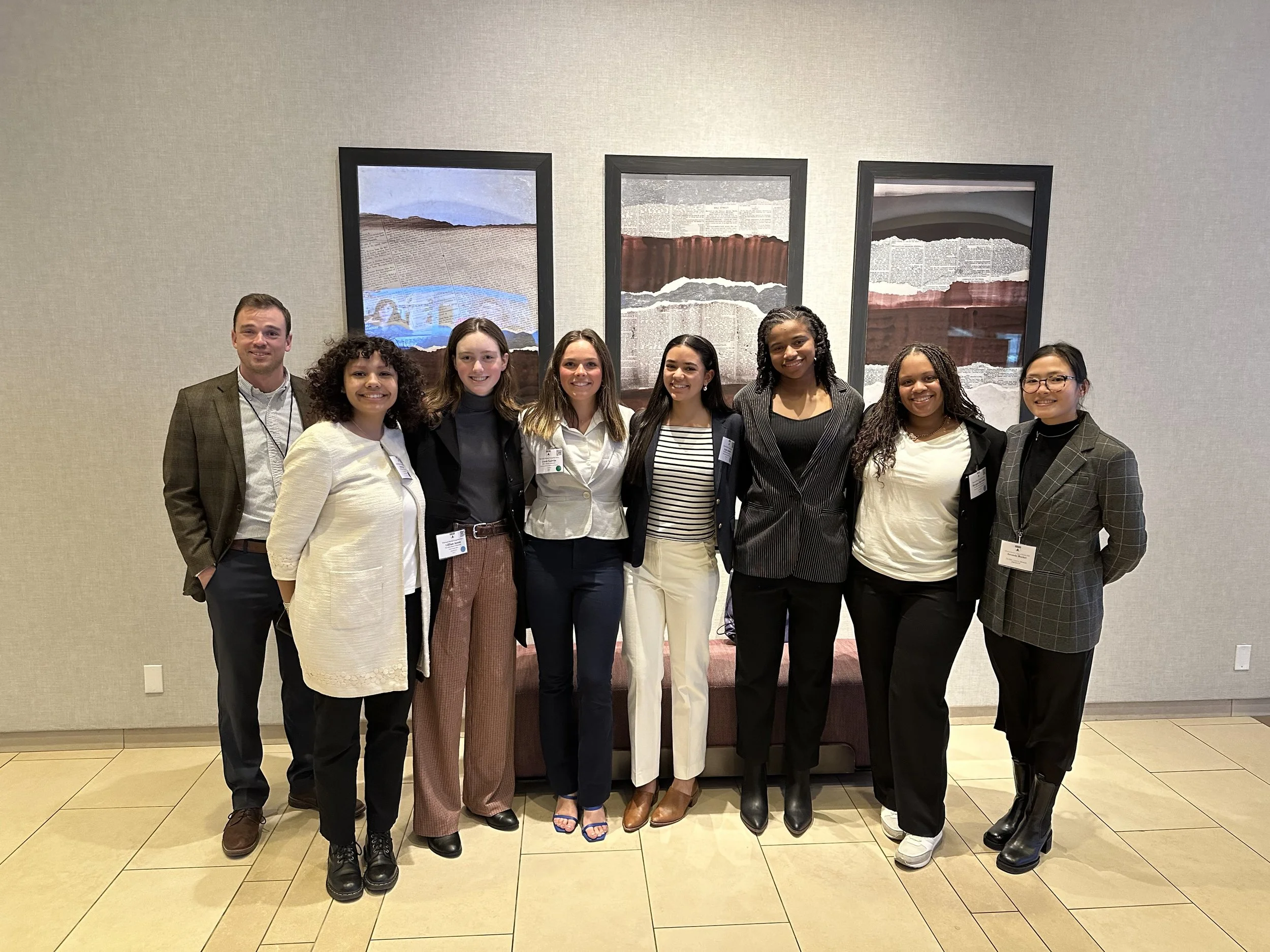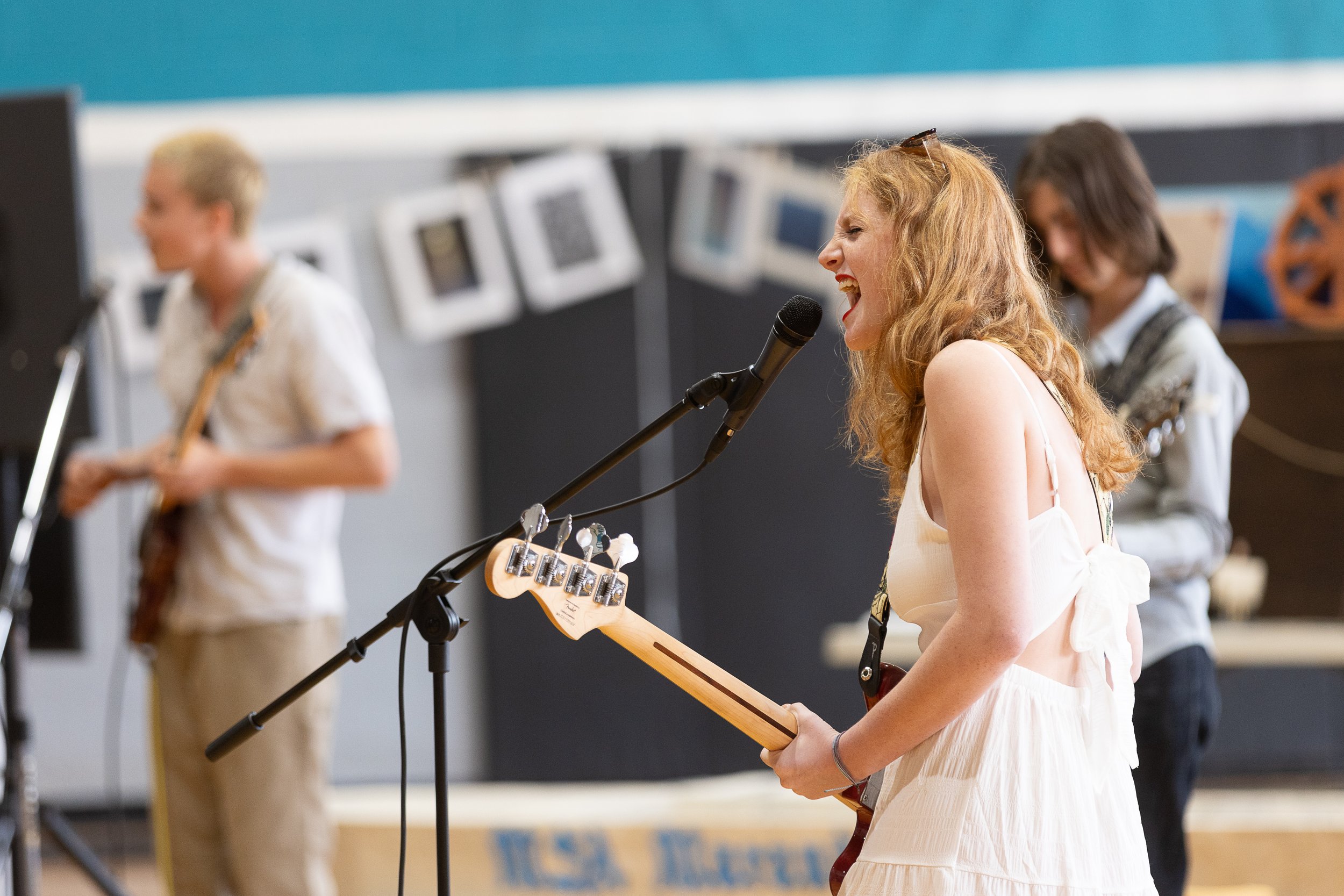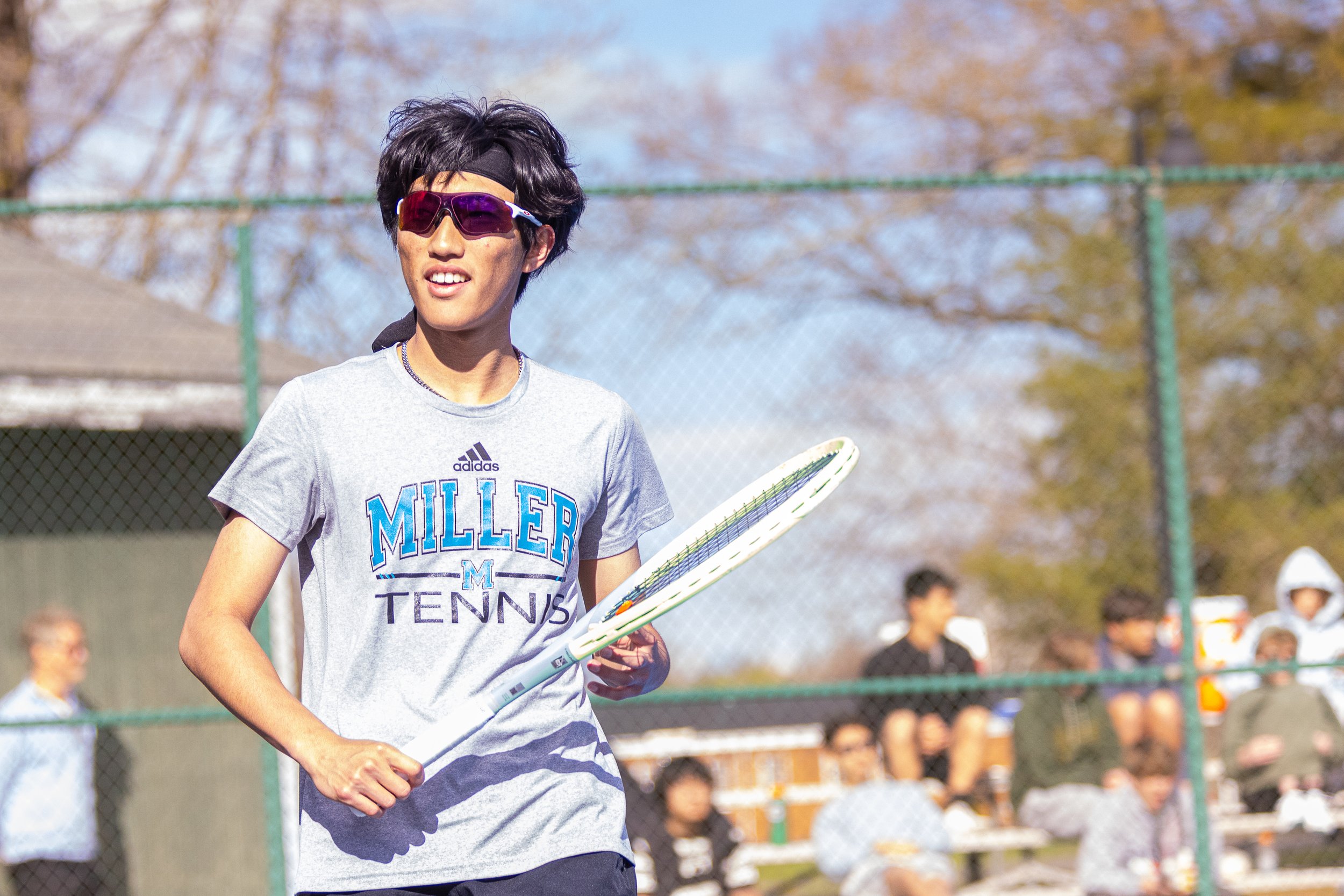Harvard Model Congress
Miller School sent six students to Harvard Model Congress (HMC) hosted by Harvard University in Boston, MA from Thursday, February 22, 2024, to Sunday, February, 25, 2024. Some 1,600 high school students from the United States and beyond gathered to debate several of the pressing issues facing the U.S. Congress today. Miller students who attended included: Lillian Amos '26, Josie Galvin '25, Morgan Harrison '25, Layla Jacobs '25, Erica Leia '24, and Naomi Ryan '25. Hampton Kennedy served as the faculty advisor, and Amanda Becker joined as a chaperone.
At HMC, students simulate the American congressional process, taking on the roles of real members of the House and Senate. Students practiced parliamentary debate, bipartisan collaboration, and writing and passing bills. MSA students were spread across the following committees: House Space, Science, and Technology; House Foreign Affairs; House Energy and Commerce; and Senate Agriculture, Nutrition, and Forestry. They debated topics such as regulating the use of AI and the future of nutrition assistance programs.
Students met in the individual committees where they debated and drafted legislation that was then voted on and sometimes sent to the House and Senate. Several MSA students authored bills that were passed in these small committees. The conference was run and committees were moderated by current Harvard undergraduate students.
While in Boston, students got to tour Harvard University and sit in on a college class. Our students chose to attend introductory calculus and a government course that examined the democratization of Britain.
Students and faculty got the opportunity to hear from various speakers during Opening and Closing Ceremonies. At the opening ceremonies, attendees heard from Representative Gabe Amo of Rhode Island’s 1st congressional district. He shared his path to office from supporting local government to serving in Biden’s White House, and emphasized the importance of making sustained commitments to one’s community in part by listening to and acting on the concerns of one’s constituency. At the closing ceremonies, attendees heard from the head of the Massachusetts ACLU, Carol Rose. She, too, emphasized the importance of relationship building in government and politics. Rose discussed the myriad of ways that students can engage with government directly and indirectly: through running for office, volunteering on campaigns or for groups like the ACLU, activism, education, law, and more. Also at closing ceremonies, selected student speakers spoke about what spurred their engagement with Model Congress and their how they plan to leverage the knowledge they have gained through participation in Model Congress to better the communities to which they belong and society at large.
All six of our students were new to Model Congress and they did exceptionally well. Two of our students were recognized by the chairs of their committees: Lillian Amos was awarded an Honorable Mention in her committee, House Foreign Affairs, and Layla Jacobs received an Honorable Mention in her committee, House Science, Space, and Technology.











